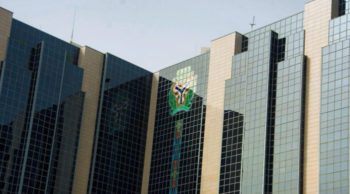
Nigeria set a new naira exchange rate on Monday for consumers with certain foreign expenses and stepped up dollar sales on the official market to narrow the spread with the black market.
Analysts doubted whether the moves would draw investors back to the suffering economy.
Nigeria has at least five exchange rates — the official one, the black market, a rate for Muslim pilgrims going to Saudi Arabia, a retail rate set by licensed exchange bureaux and a rate for foreign travel, school and medical fees.
It was this last that was changed — to 360 naira to the dollar, a four percent rise since the last rate was set.
Nigeria is battling a currency crisis brought on by low oil prices, which has tipped its economy into a recession, hammered its dollar reserves and created chronic dollar shortages, frustrating businesses and individuals.
The central bank, opposed to a free naira float, has been selling the U.S. currency on the official currency market to try to narrow the spread with the black market rate, which was at 390 last Friday, albeit down from 520 to the dollar a month ago.
On Monday it also sold dollars on the official market and said its supervisors would visit lenders to ensure compliance with the new retail rate.
The bank auctioned $1.5 million and offered $100 million on the forward market to boost liquidity. However, it sold naira on the spot market at 306.30, 21 percent weaker than the black market.
“Investors are clear that what they want is a properly functioning FX regime where … new FX shortages are not threatened. The new system does not currently meet those requirements, even if FX sales have increased,” said Razia Khan, Africa chief economist at Standard Chartered Bank.
The central bank also barred lenders from reselling foreign currency to retail exchange bureaux to curb speculation.
Aminu Gwadabe, head of Nigeria exchange bureaux, told Reuters his members had incurred currency losses of 130 million naira based on the rate differential after the central bank sold $25 million to them at 381 naira last week.
Gwadabe said that exchange bureaus may boycott central bank sales this week, adding that the regulator must review the multiplicity of rates on the currency market.
“The multiple currency system currently in place makes it difficult to ascertain how much pressure the naira is still under, and this also complicates pricing for investors,” said Cobus de Hart, senior economist at NKC in Johannesburg.
“We remain sceptical in relation to the central bank’s current approach,” he said, adding that lower oil prices, a slowly rising foreign reserves and currency forwards due to mature, may soon test the bank.
